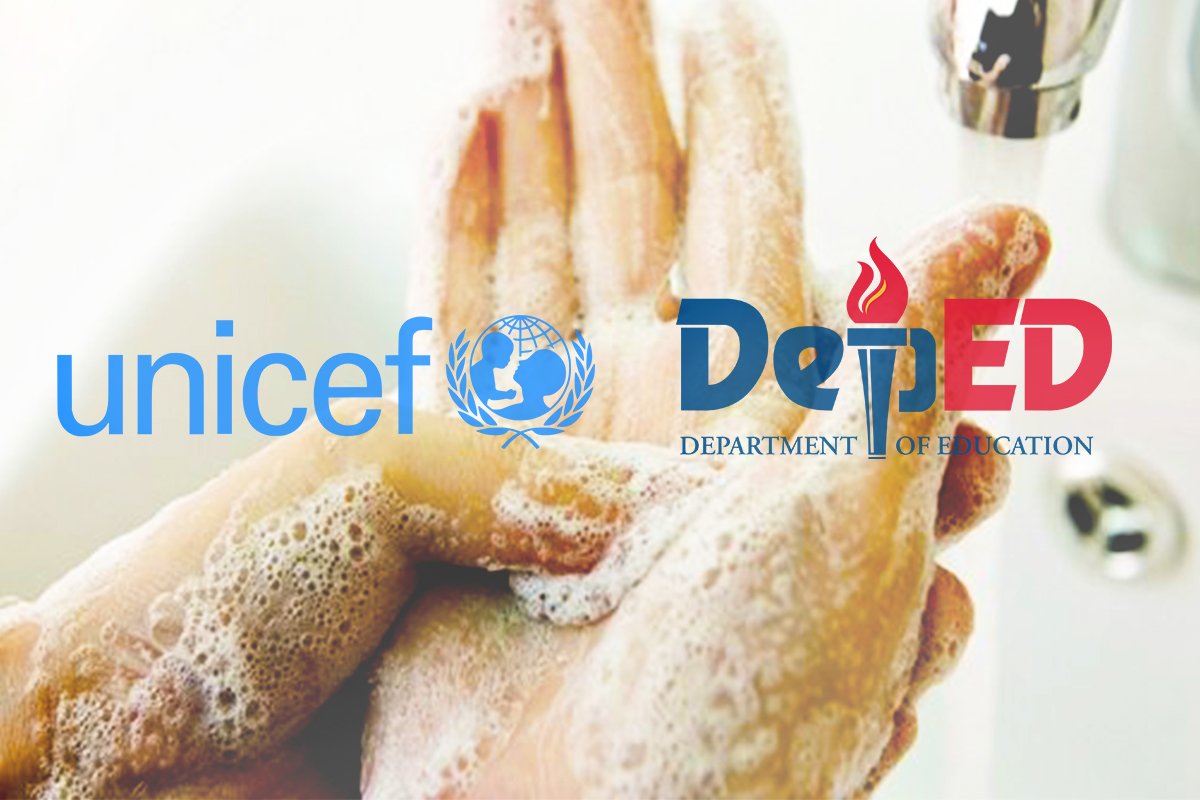
DepEd, UNICEF Working Together to Promote Better Hygiene
The Department of Education (DepEd) and United Nations Children’s Fund (UNICEF) are teaming up to promote Water, Sanitation and Hygiene (WASH) in Schools.
The goal is to raise awareness in proper hygiene in schools while contributing to the global agenda of the Social Development Goals.
Schools Officer of the UNICEF WASH section Jon Michael Villasensor mentioned that UNICEF is working with DepEd in formulating DepEd Order No. 10 or the National Washing School Policy.
The nonprofit organization also provided technical support to DepEd in creating the Three Star Approach strategy.
“What is quite remarkable is the momentum that people are pushing and the enthusiasm to implement this now. There is national policy, there is a strategy to implement it, there is a recognition system for performance,” said Villasensor.
“The mindset now is that school health is not something separate from the business of DepEd. Rather it is a precondition needed for DepEd to achieve the learning outcomes of children,” he added.
He also mentioned that children will benefit from WASH facilities since they provide a safe and conducive learning environment.
Opportunity for Regions to Learn from Each Other
A three-day national learning exchange was held for implementers of WASH in Schools program.
Ma. Gemma M. Ledesma, DepEd Western Visayas Regional Director, said that this event provided a chance for participating regions to “learn from each other”.
“Learning from each other is very important, especially that this activity is lodged on school-based management,” she said.
Ledesma also said that the goal in Western Visayas is clear: provide water, sanitation and hygiene facilities including health education and deworming.
The region’s 20 divisions already implemented WASH but in varying stages according to the Three Star Approach.
“Reaching the three stars means reaching the national standards,” she said.
“If we believe that our children need to be healthy to go to school, we should implement WASH. It is really proven that handwashing is a key to healthy body. It is through keeping hands clean that we can drive off infection, we can drive off diseases,” said Ledesma.
Benefits of WASH
Director Ledesma mentioned that there are studies that prove the correlation between the implementation of WASH and the students’ attendance and achievement in school.
Safe drinking water, gender-segregated toilets, group hand-washing facilities, and access to menstrual pads are the basic requirements. One challenge that the program frequently encounters, however, is access to sustainable water supply–something that must be addressed by local government units.
The first WASH in Schools international learning exchange was hosted by Iloilo in 2012.
“This is ground zero of international learning exchange. It happens that Region 6 has also been able to lead the implementation of WASH in Schools in the Philippines. It is providential that they are hosting it here,” he said.
Aside from WASH, the three-day event also allowed selected divisions of DepEd Western Visayas to showcase various initiatives implemented in their jurisdiction.
via Philippine News Agency / Perla Lena




